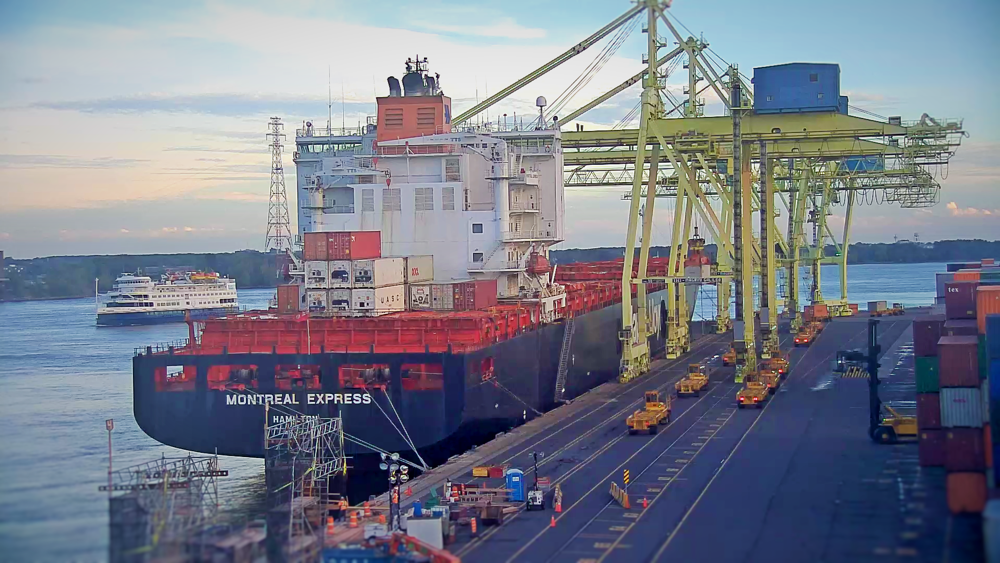By Leo Ryan, Editor
The prolonged conflict between the Montreal longshore union and port employers is heading for another critical moment Sunday when 1,125 dockers vote during a General Assembly on a final offer of settlement extended on March 12 by the Maritime Employers Association (MEA). This coincides with the last day of a seven-month truce concluded last summer following a series of work stoppages.
The two sides have been unable to renew a six-year collective agreement which expired on December 31, 2018, even with the assistance of as many as three federal mediators. Working schedules are reportedly the single biggest outstanding issue in a waterfront crisis that is once more inducing shippers to divert cargo and cause alarm amongst political, port and business circles throughout Quebec and Canada.
By common accord, the MEA and the CUPE 375 union are not commenting to media on the final agreement and the ongoing negotiations.
The union indicated that Canada’s second largest port will be closed between 0700 hours and 1500 hours Sunday while its members attend the General Assembly.
In this regard, Mélanie Nadeau, Communications Director of the Montreal Port Authority, recalled that several times a year, work by dockers can be halted for a few hours on weekends for meetings on various matters – “as will be case this Sunday. The activities requiring the work of dockers will thus cease during this period linked to the General Assembly. However, other activities not needing the involvement of dockers, such as the liquid bulk sector, will pursue their normal course.”
At the end of the truce, the two parties will regain a right to lock out or strike – unless this option is not revived.
Most industry observers expect the majority of dockers to not give their approval on Sunday. Should this be the case, one option would be to give the required 72-hour notice on intention to strike.
The federal government has, up till now, preferred to place faith in the negotiating process. But imposing back-to-work legislation could be on the horizon should no negotiated settlement be in sight very soon in light of the significant potential impact on the Canadian supply chain and the competitiveness of the Port of Montreal.
Meanwhile, the Canadian Industrial Relations Board (CIRB) today rendered a decision rejecting a complaint filed February 1 by the MEA alleging that the union had not bargained in good faith. In response, the MEA stated: “We acknowledge the decision and we will follow with attention the recommendations emanating from the CIRB.”
Already, after holding several weeks of hearings in 2019, the CIRB declined an MEA request to categorize all longshore operations as “essential services” that could not be interrupted by work stoppages. (photo Port of Montreal)





